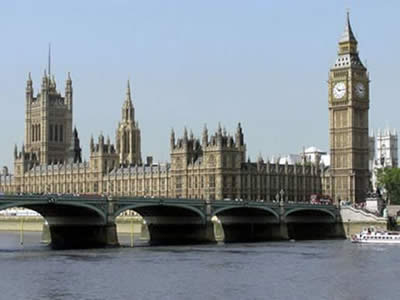Britain piled extra pressure on Brazil Tuesday to drop its support of Iran and back sanctions against Tehran in a UN Security Council vote expected within a month or two, AFP reported.
A senior Foreign Office official, Nicholas Hopton, outlined the "very direct message" he was taking to Brasilia on the matter, in comments to reporters late Monday in Sao Paulo.
"This is a crucial moment for Brazil to stand up and be counted and show that it is ready to take on the responsibilities of a Security Council member and to take the difficult decision to support sanctions," he said.
His pointed visit came on the heels of similarly urgent entreaties to Brazil earlier this month by Germany's foreign minister, Guido Westerwelle, and US Secretary of State Hillary Clinton.
Brazil, which became a temporary UN Security Council member this year, rebuffed those demands, saying Iran should be given more negotiating room to allay Western fears it was building a nuclear arsenal.
Brazilian President Luiz Inacio Lula da Silva has gone to great lengths to build warm relations with Iran, even hosting a visit by Iranian President Mahmoud Ahmadinejad last year -- and planning a trip to Tehran himself on May 15.
Lula has said it is "not prudent to push Iran into a corner," and has supported Tehran's nuclear energy program.
But the countries making up the so-called "P5-plus-1" trying to rein in Iran's nuclear ambitions -- the five veto-wielding UN Security Council members Britain, China, France, Russia and the United States; plus Germany -- have become increasingly alarmed at Tehran's intransigence.
A UN Security Council vote on a resolution increasing economic sanctions against Iran's leadership and Revolutionary Guard is expected within weeks.
All of the permanent UN Security Council members except China appear to be in favor.
For sanctions to be approved, nine of the 15 Security Council members -- including all five permanent members -- have to vote for them.
Brazil, Lebanon and Turkey form the main opposition on the council to the proposed resolution.
Hopton, deputy director of the Foreign Office's International Security Directorate, said Britain viewed sanctions as the only leverage susceptible to force Iran to negotiate over its nuclear program.
"This is about trying to encourage Iran to engage in a real dialogue. Since 2006 we've been trying to have a real dialogue, and the Iranians have been playing games," he said.
He dismissed concerns voiced by President Lula and other Brazilian officials that the UN ganging-up on Iran smacked of the US-engineered push in the world body in 2002 to lay the groundwork for the invasion of Iraq to seek non-existent weapons of mass destruction.
"It's not another Iraq," Hopton said.
He said that, if Brazil were to back sanctions on Iran, "the rest of the world would notice."
Hopton added that "the risks are very big" if sanctions were not approved.
"Either you have a pre-emptive Israeli strike -- and they're very serious when they talk about that possibility.
"Or you have a situation where Iran should get a nuclear weapon and other countries in the region feel very threatened by it, can decide to follow the same path, and very soon you've got a much more fragile Middle East than you've got at the moment, with much more risk of nuclear conflagration," he said.






